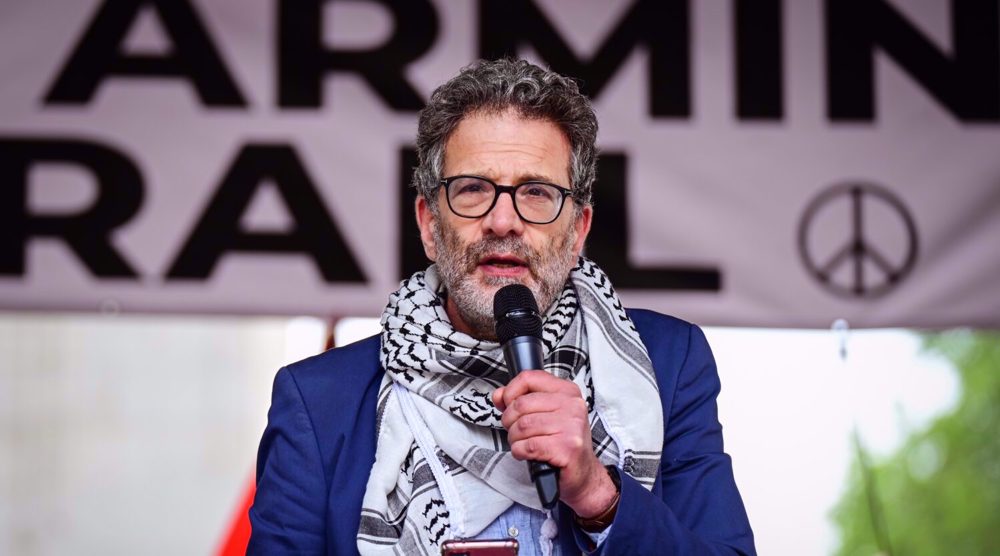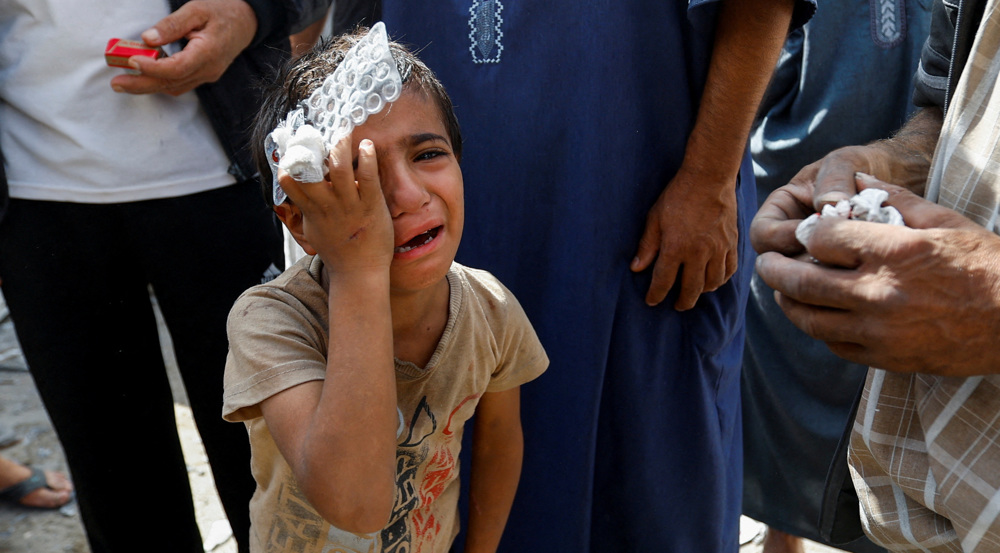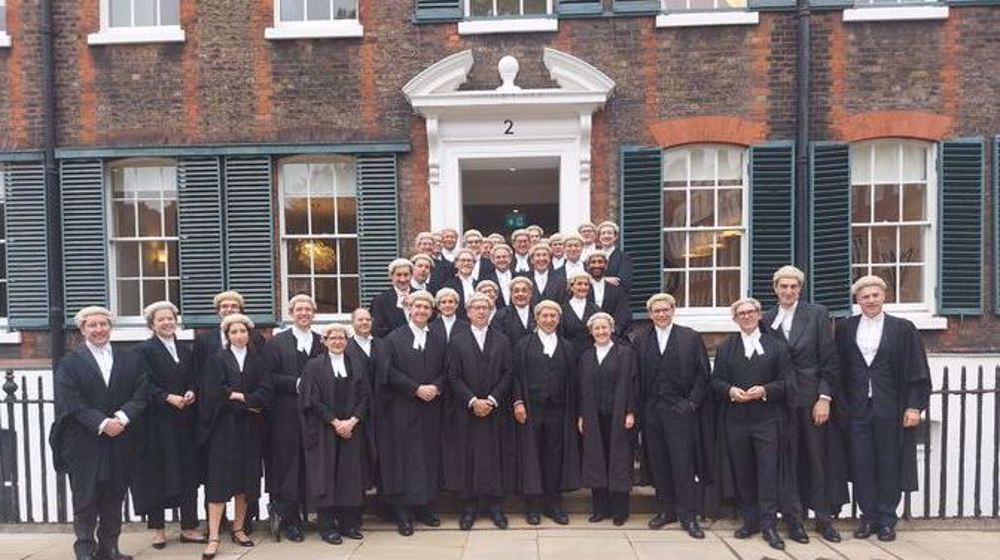West collective security under Brexit threat: Defense minister
Leaving the European Union would not only hurt Britain but will also undermine “the collective security of the West," says Britain's defense minister.
Speaking to reporters on the sidelines of a NATO defense ministers meeting in Brussels on Tuesday, Michael Fallon warned of a "very dangerous moment" as Britons were preparing for next week’s referendum.
“No country has ever left either NATO or the EU which are the twin pillars of our security," he said. "For a major country like Britain to leave either of those partnerships would weaken the collective security of the West.”
Fallon called on the British population to consider the disadvantages of leaving the bloc and vote in favor of remaining in the EU on June 23.
"I would hope voters think very, very hard about the real risks to our security of voting to leave."
His remarks came as the latest polls showed that the British favor Brexit despite similar warnings by international institutions and officials, including the World Trade Organization and Prime Minister David Cameron.
UK committed to eastern flank
Having visited other NATO defense ministers in EU’s de facto capital, Fallon announced the UK would deploy one of the "framework battalions" to beef up the defenses of the Baltic republics and Poland.
"That's around 500 British personnel rotating on a continuous basis," Fallon said, adding other states, including France, would also contribute to the deployment.
Moreover, Britain would send between 150 and 200 troops as well as military vehicles and equipment to train and operate alongside Polish soldiers.
Fallon described the measures as "a very clear message that we are committed to defend the eastern flank. NATO is strong and united. ...We are ready to respond to any threat."
NATO Secretary General Jens Stoltenberg, meanwhile, announced that the alliance would formally approve the deployment of four "robust" multinational battalions in Poland as well as the Baltic states of Lithuania, Estonia, and Latvia.
NATO’s military build-up in Eastern Europe has raised concerns given the provocative actions it may lead to on Russia’s doorstep.
The chairman of the defense committee of Russia's State Duma (the lower house of parliament), Vladimir Komoyedov, said in response that the foreign troops “are posing no danger for Russia since our army now is different from what we had twenty years ago,"
The deployment is set be formally approved in a July summit in the Polish capital Warsaw.
Israeli jets flyby over Nasrallah funeral ‘act of terror’: Iran FM
IRGC: Nasrallah funeral ‘global resonance of resistance’; Hezbollah resolute to dismantle Israel
VIDEO | Pakistanis attend mass funeral for martyred Hezbollah leaders
Hamas condemns escalation as Israel deploys tanks into West Bank for first time in decades
Iran Army’s hovercrafts fitted with advanced long-range missiles: Navy chief
VIDEO | Pro-Palestine protesters in Madrid call for end to Israeli crimes
VIDEO | Tehran commemorates martyred Hezbollah leader
VIDEO | Press TV's news headlines










 This makes it easy to access the Press TV website
This makes it easy to access the Press TV website